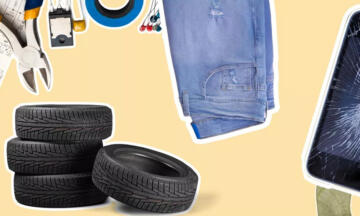Better care for the environment and climate are cross-border challenges requiring us to join forces. With its Green Deal, the European Union has already taken an initial step towards more sustainability and climate neutrality by 2050. However, more concrete actions are needed to create real change.
That is why on 23 April 2024, the European Parliament adopted the ecodesignEcodesign allows a product design to be adapted in view of its repair or a full or partial repurposing of its components at the end of its useful life.-sustainable-products-regulation_en">Ecodesign for Sustainable Products (ESPR) regulation. The new law came into effect on 18 July. This framework act encourages sustainable product design, development and repairRepair is making a faulty product work again, allowing its use to be extended without the user parting with it, or with a view to reuseReuse designates all operations by which substances, materials or products that are not waste are used again in an identical way to their originally intended purpose. (donation, second-hand sale).. This way Europe wants to extend the average product lifespan and reduce their environmental and societal impact.
What Has Changed?
ESPR includes a host of new measures, such as:
- Banning the destruction of unsold products
- Mandating transparency on sustainability of a product, for instance via a barcode or a QR code on the packaging (Digital Product Passport), enabling consumers to make well-considered choices
- Encouraging companies to focus more on ecodesign to help improve the circularityCircularity describes the quantity of materials managed in a closed loop., energy performance and other sustainability aspects of products on the European market
- …
Does the ESPR Apply to your Business?
The aim is to introduce these directives in all industries, with a few exceptions such as food and medicine. Europe is looking to both SMESmall and medium-sized enterprisess and large companies and multinationals, but smaller businesses will benefit from flexibility in that they will have more time to adapt their business processes to the new rules. Initially Europe targets industries that use plenty of raw materials, such as packaging, electronics, construction, metal and textile industries... If your business is active in one of these industries, you will likely be among the first to be confronted with the new rules.
Is ESPR Already in Effect?
Although ESPR came into effect on 18 July 2024, it won’t require immediate changes to your operations. ESPR will be gradually introduced, with work plans per product or product group. The first work plan is scheduled for April 2025. However, the new rules are expected to have an impact in all European countries in the coming years.
Help, What Do I Do Now?
It’s a good idea to start preparing today for the changes ESPR will bring. Fortunately you’re not alone in this! The online survey made available by the FPS Economy on Go for Circular can help you assess where your business stands and offers quite a few useful tips that will set you on the path to even more sustainable entrepreneurship. It’s an ideal starting point to critically evaluate what is already going well in your company and identify the steps you can take to do even better. Incidentally, on Go for Circular you will find plenty of inspiring stories and useful information about ecodesign.
Want to know more about the Ecodesign for Sustainable Products Regulation? Visit the website of the European Commission for detailed information, or watch an extensive webcast as well as a video in which ESPR is briefly and clearly explained.




